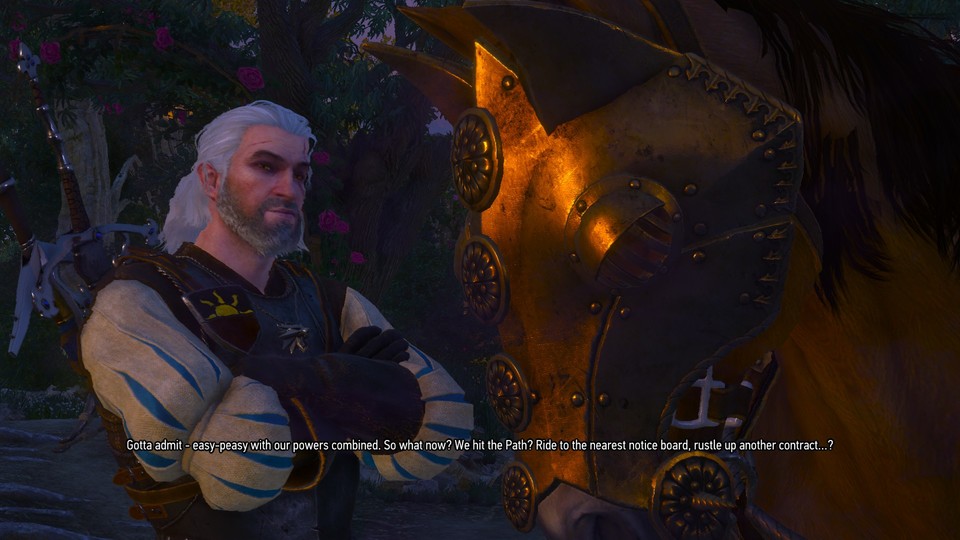A dull, repetitive legend
Shaq Fu: A Legend Reborn ends up feeling most like a parody game. And it isn't the worst parody-game I've played.
Its mechanics are simple, but basically functional -- at times, even "fun." And what I appreciated the most in the first stage was the game's off-the-wall humor.
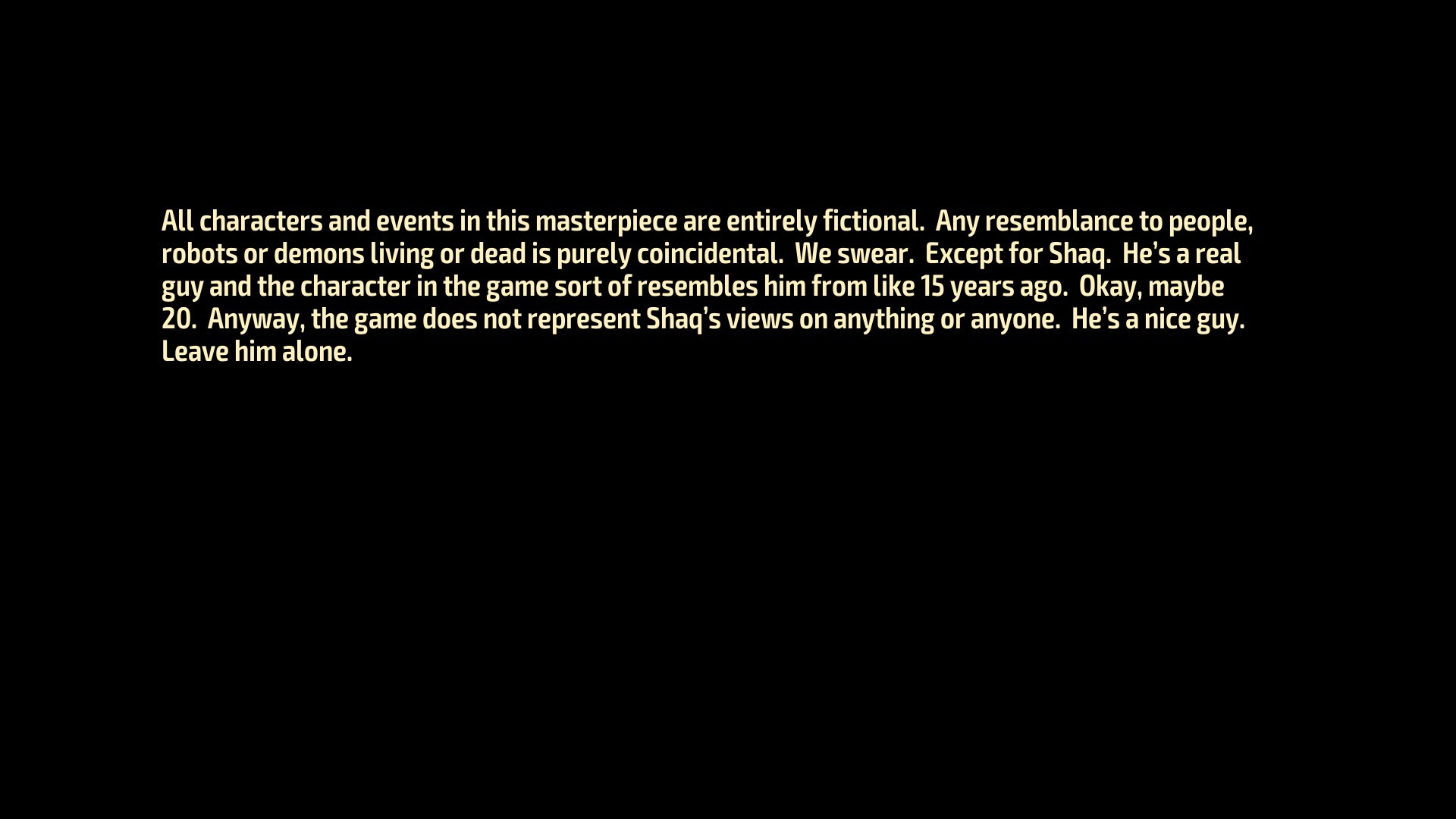
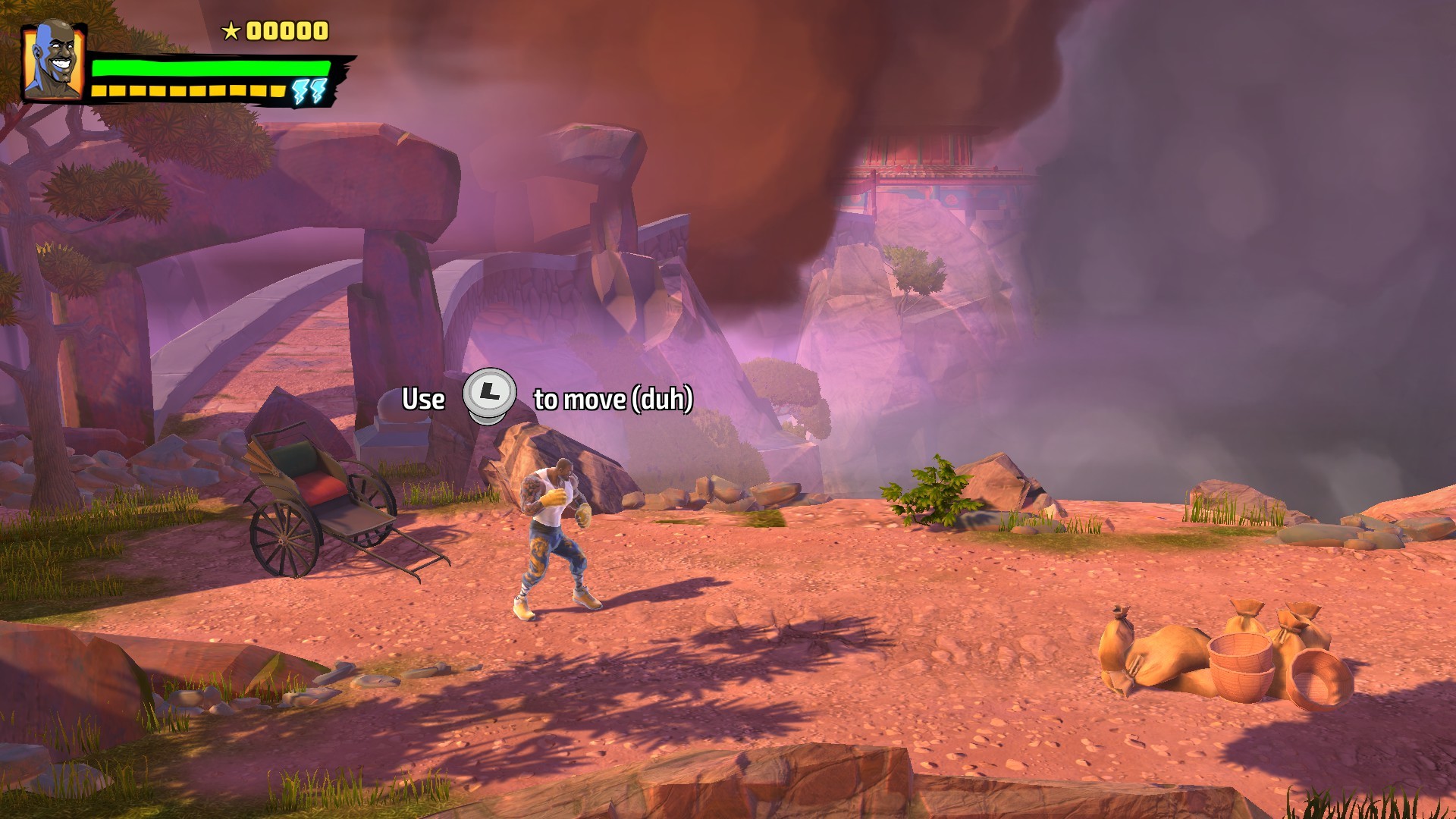
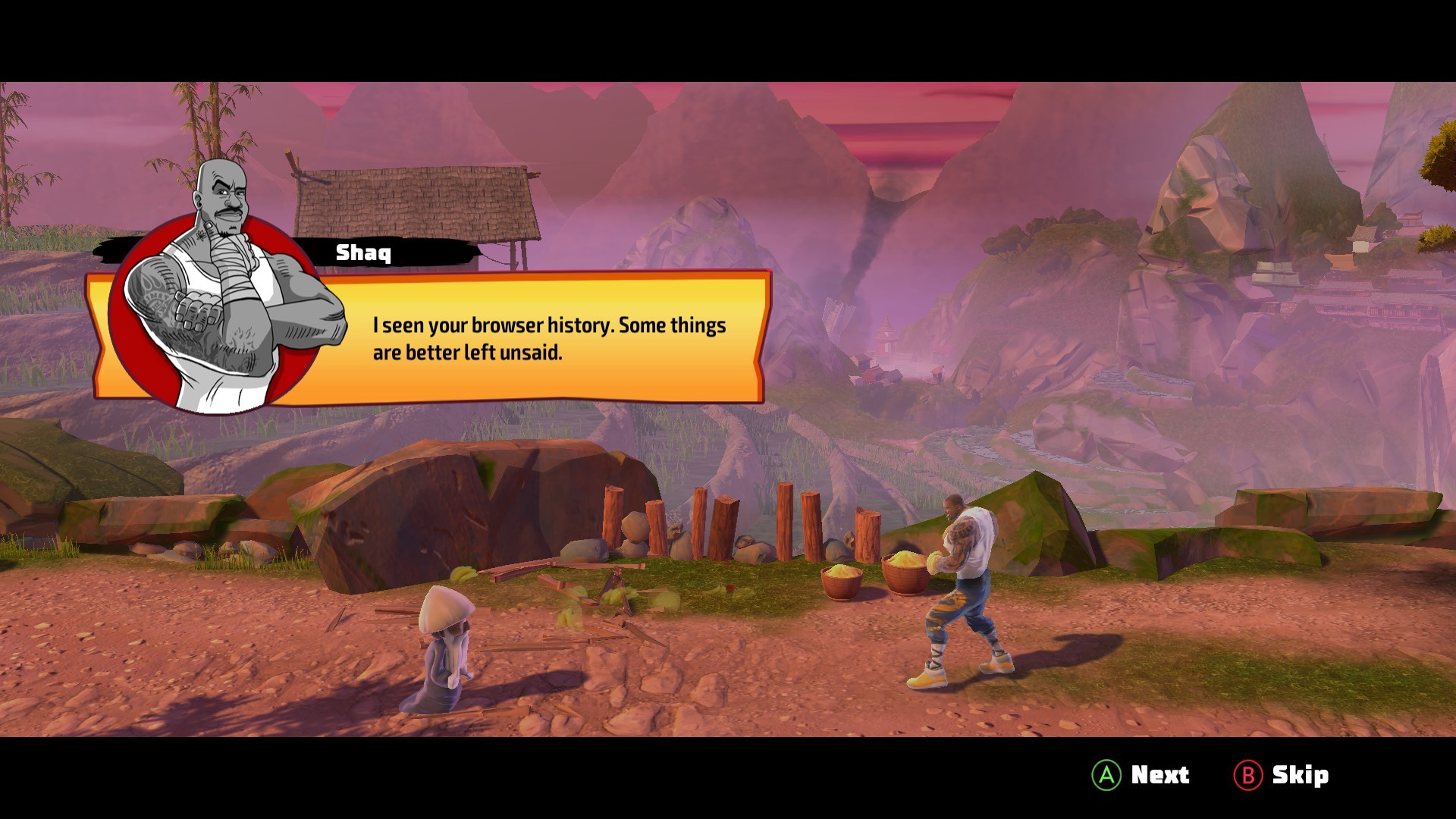
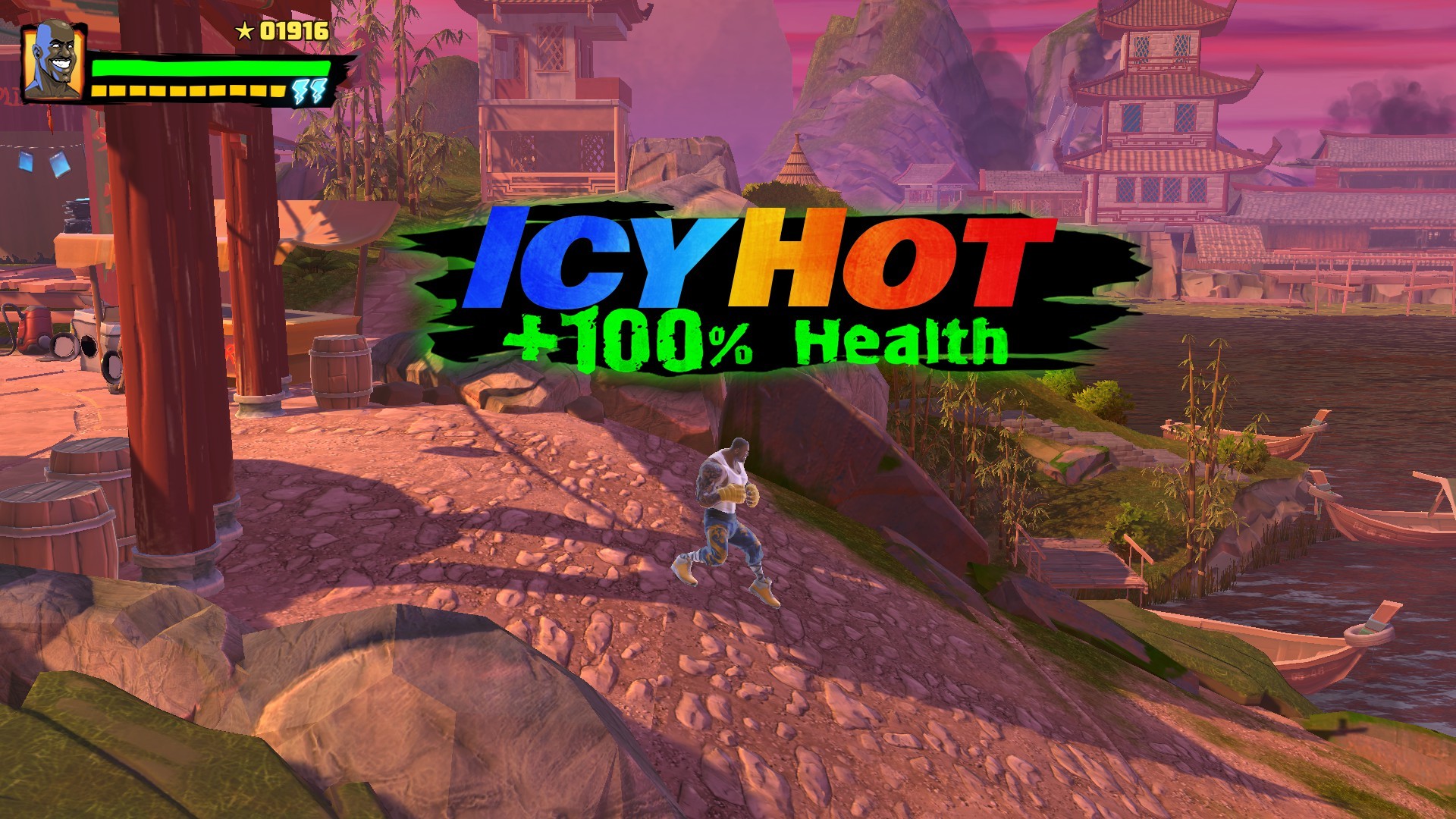
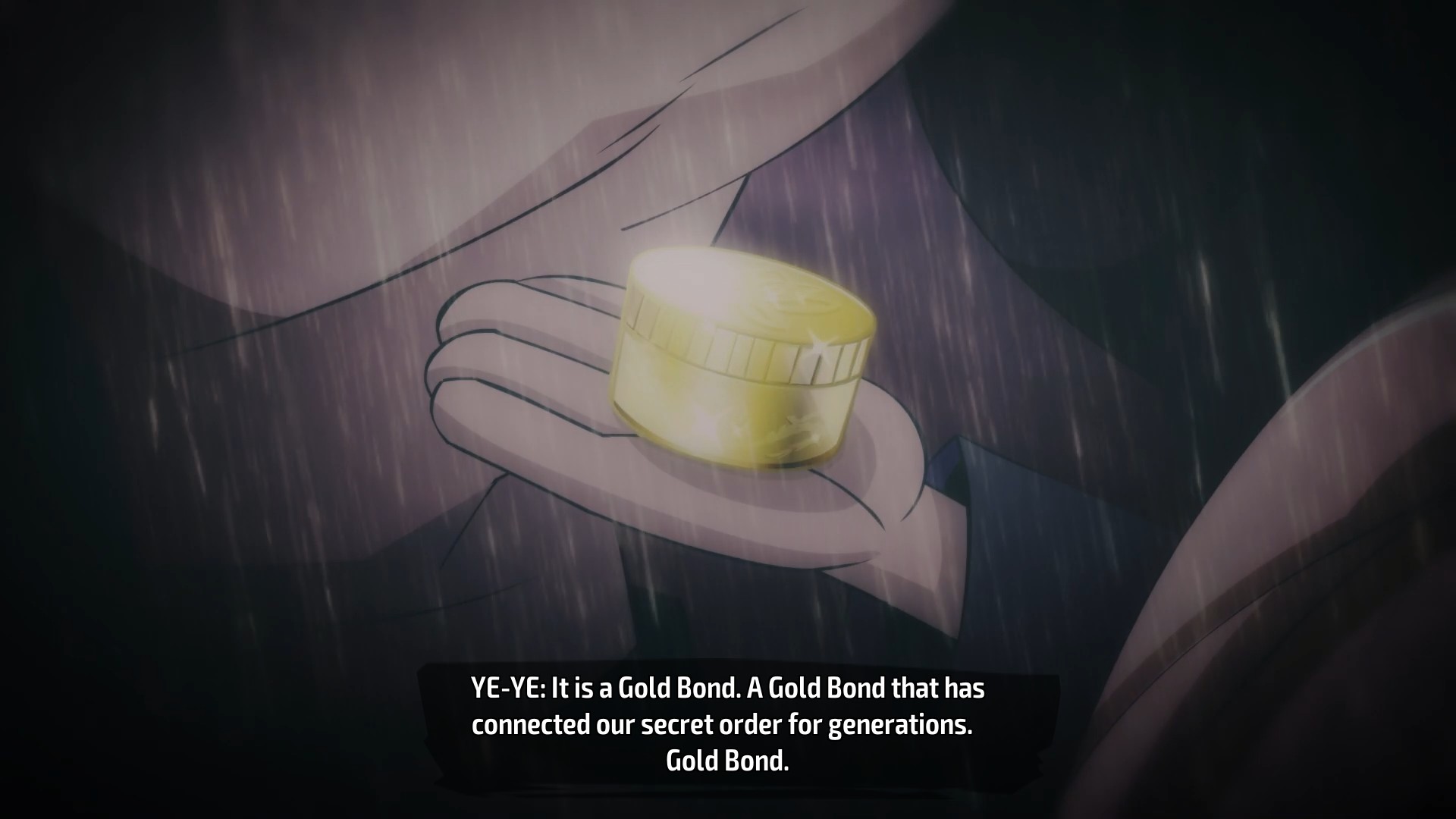
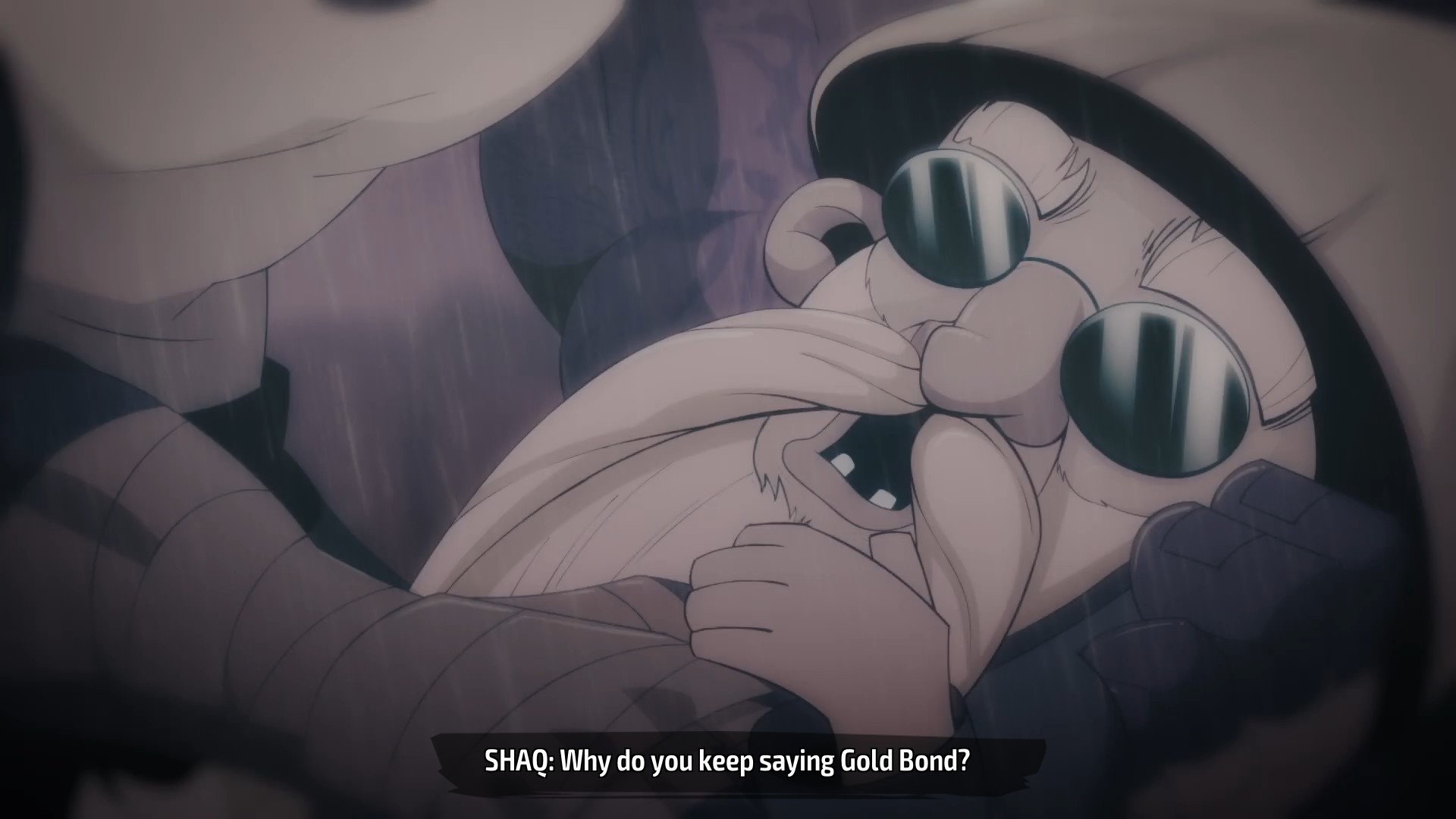
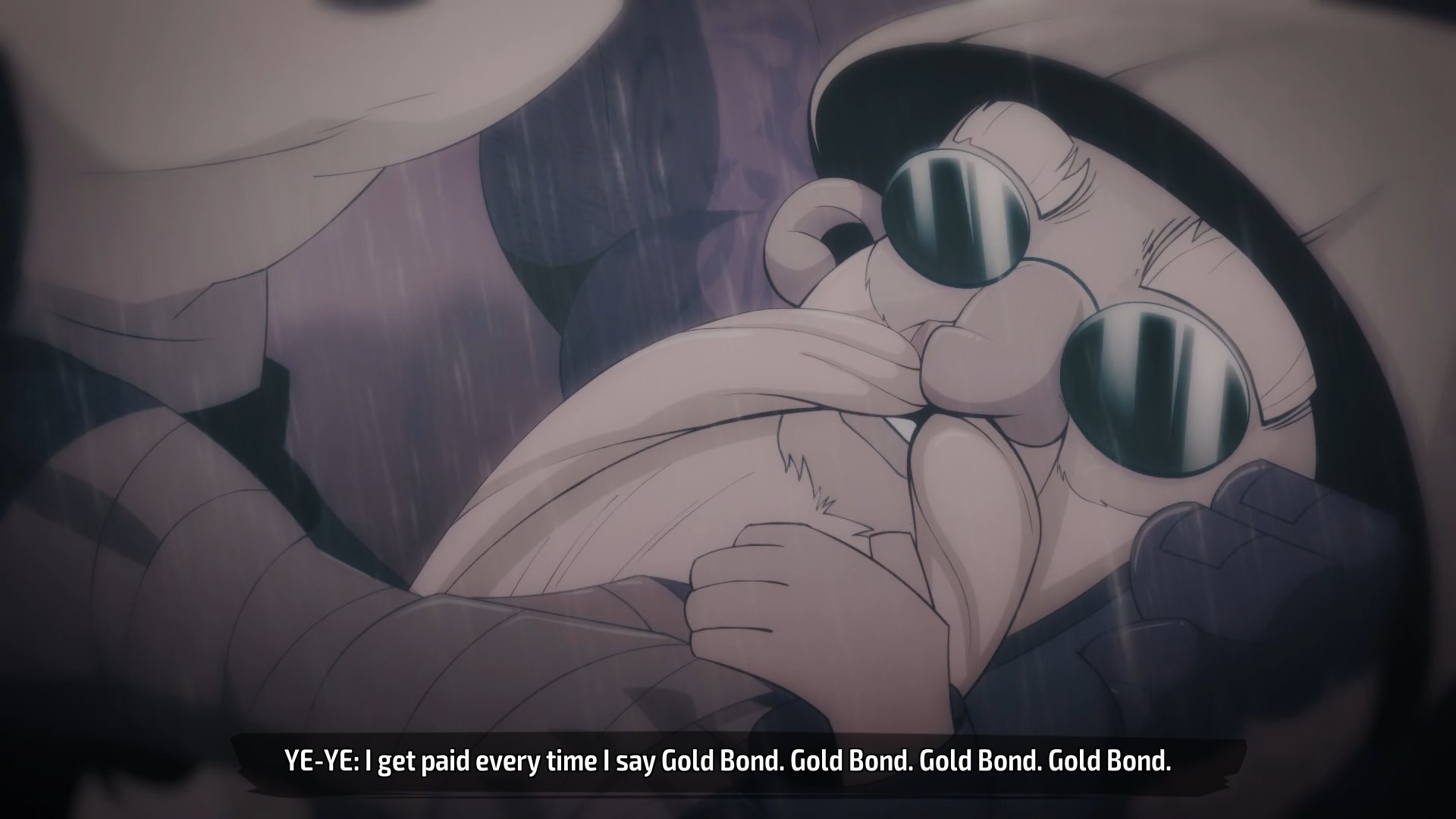
But Shaq Fu 2's gameplay gets stale real, real fast. Levels have no meaningful interactivity, there's very little variety in enemy behaviors (most of them are total pushovers), and combat fails to evolve over the course of the game. Actually, of the two (!) power-ups Shaq can find, the second one manages to be even less interesting than mashing the punch button.
Most of the time, Shaq Fu 2 doesn't know what to do except throw wave, after wave, after wave, after wave, after wave, after wave of enemies at you, for minutes at a time.
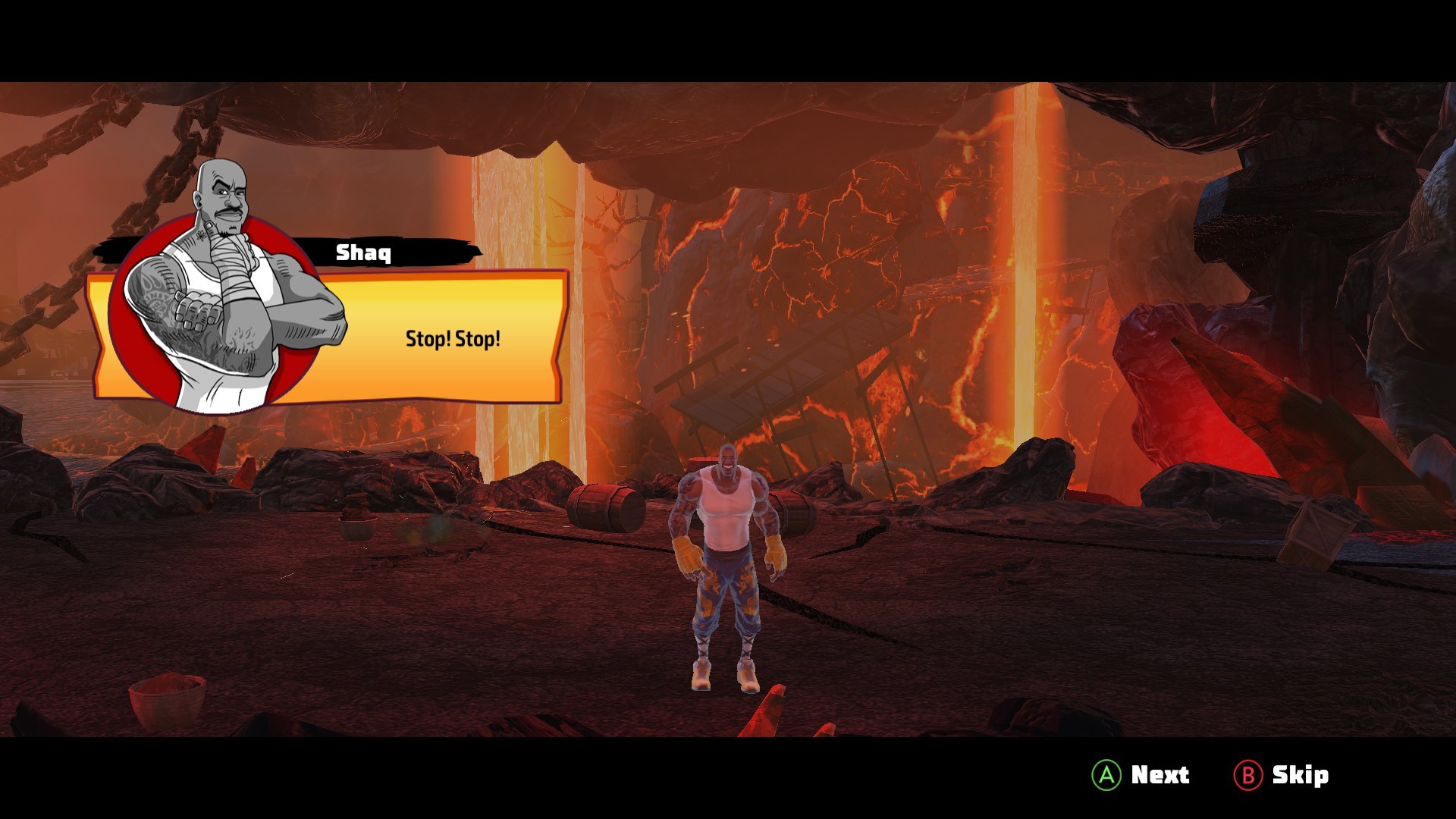
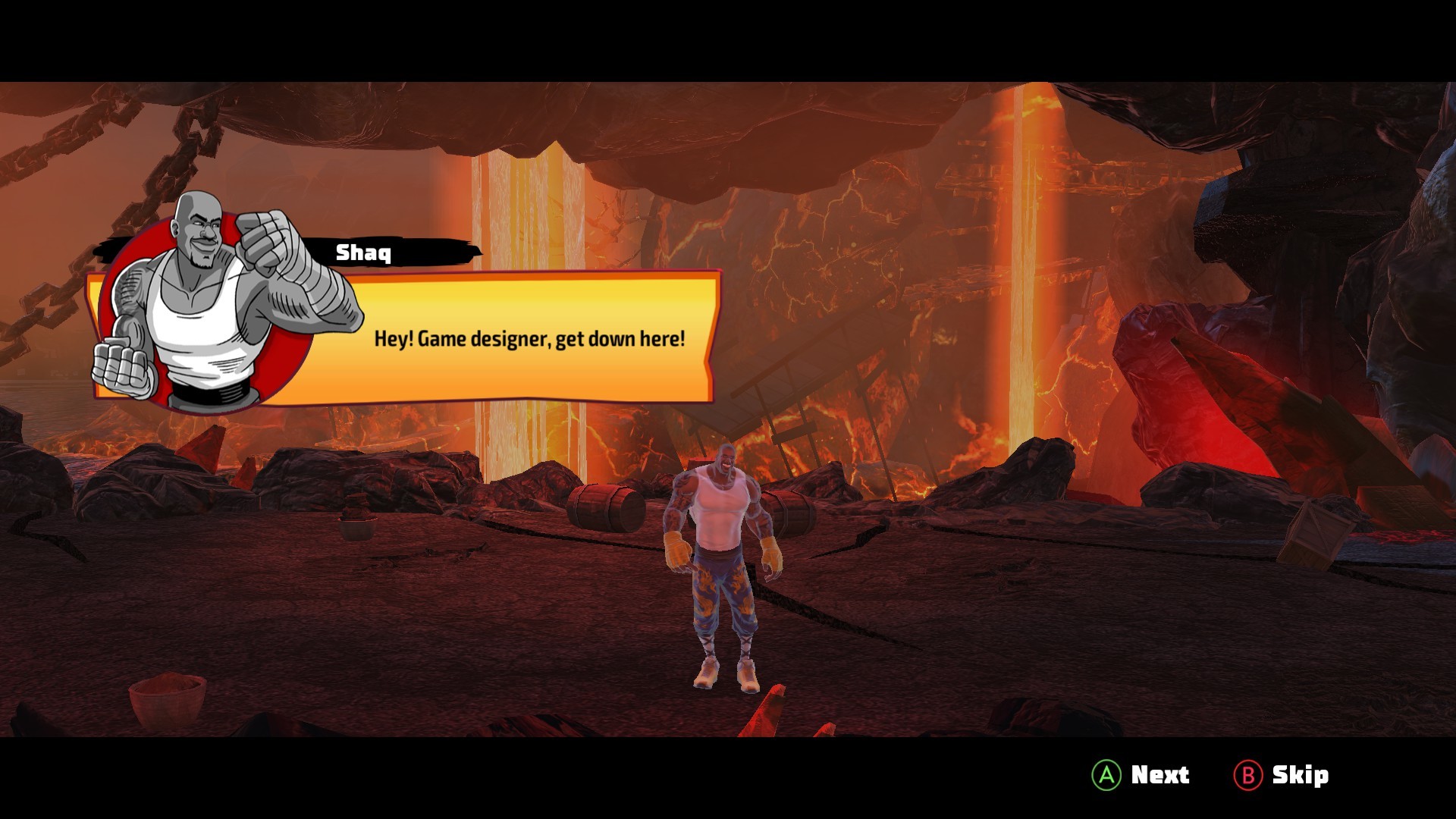
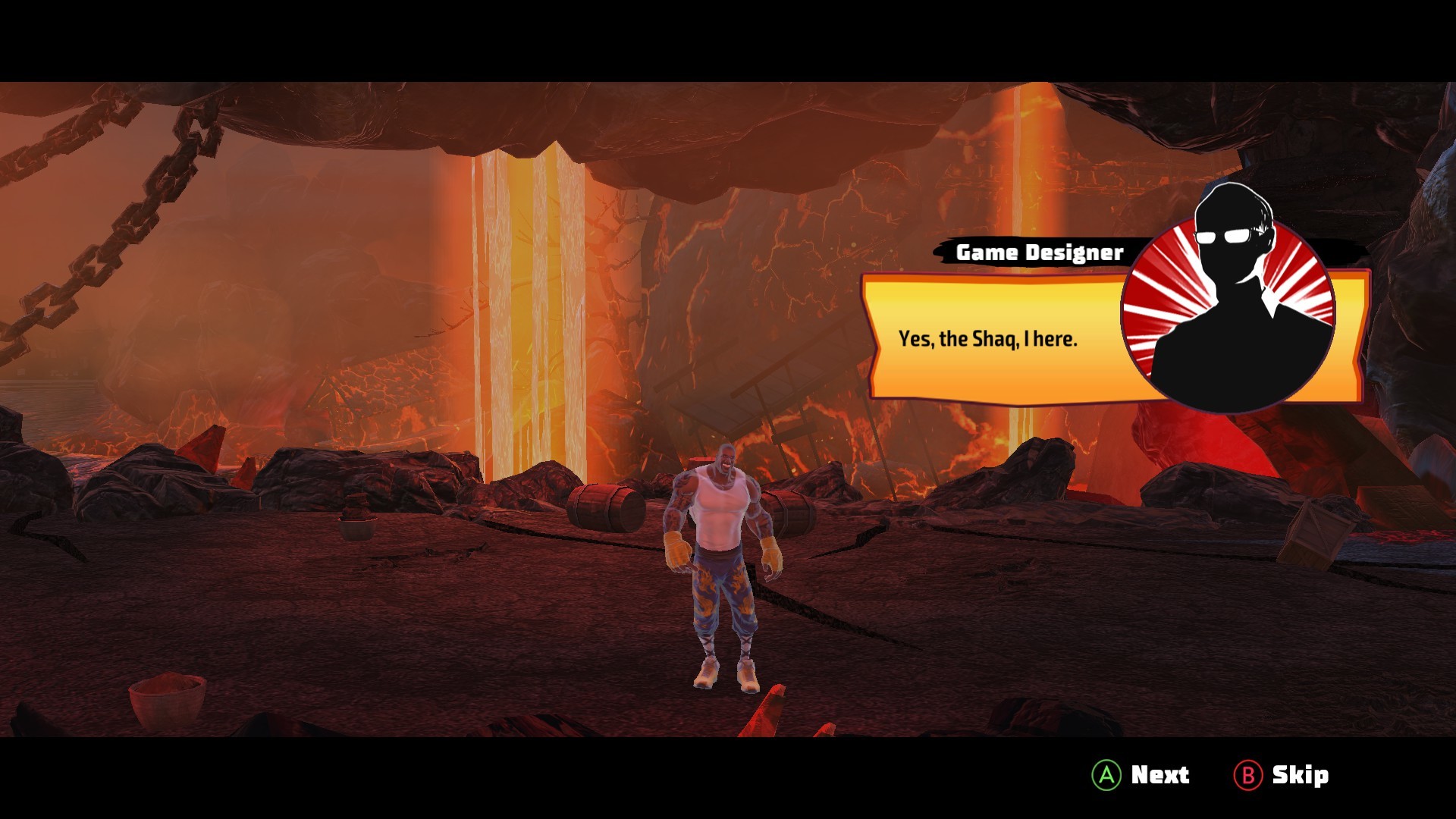
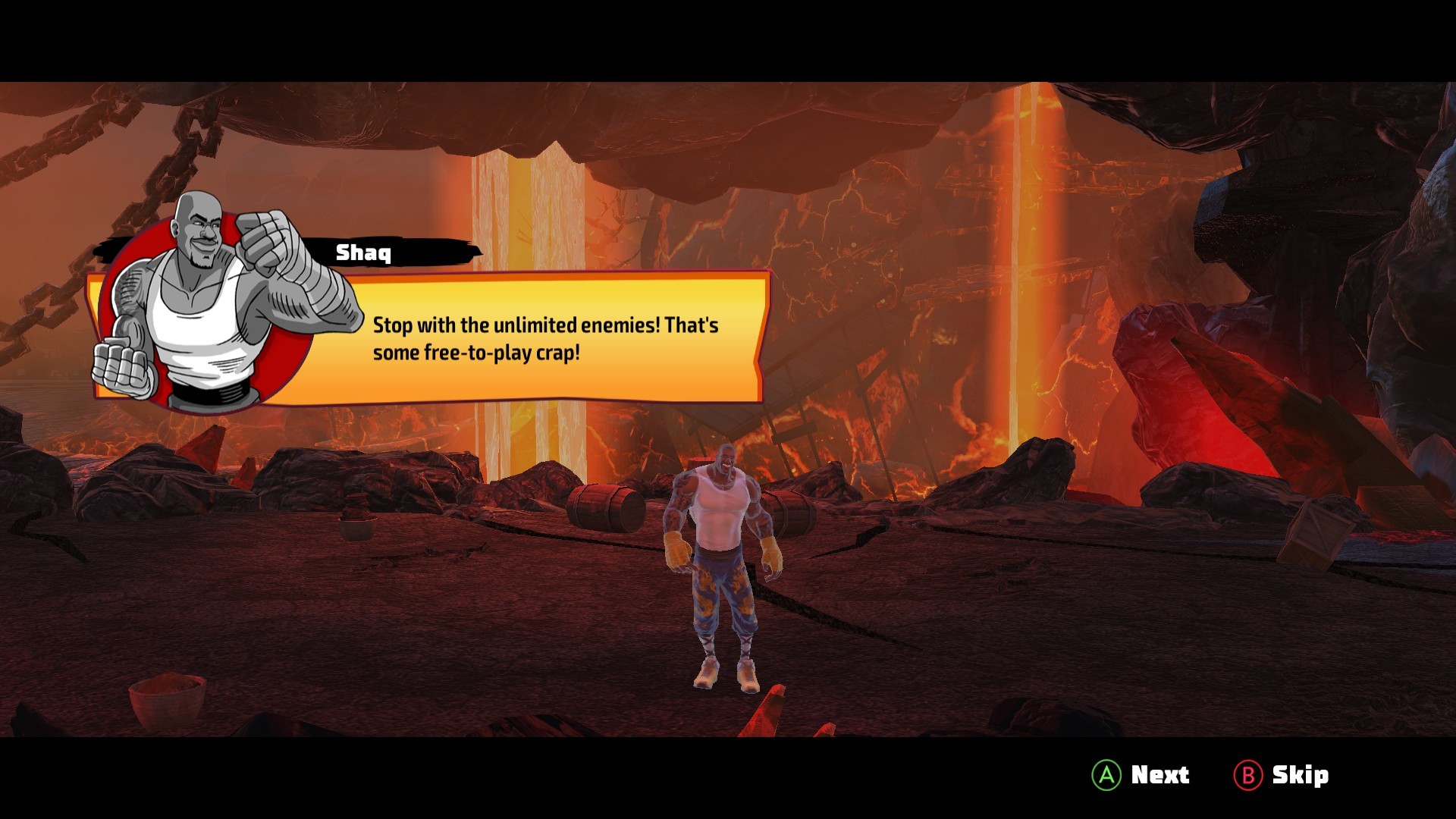
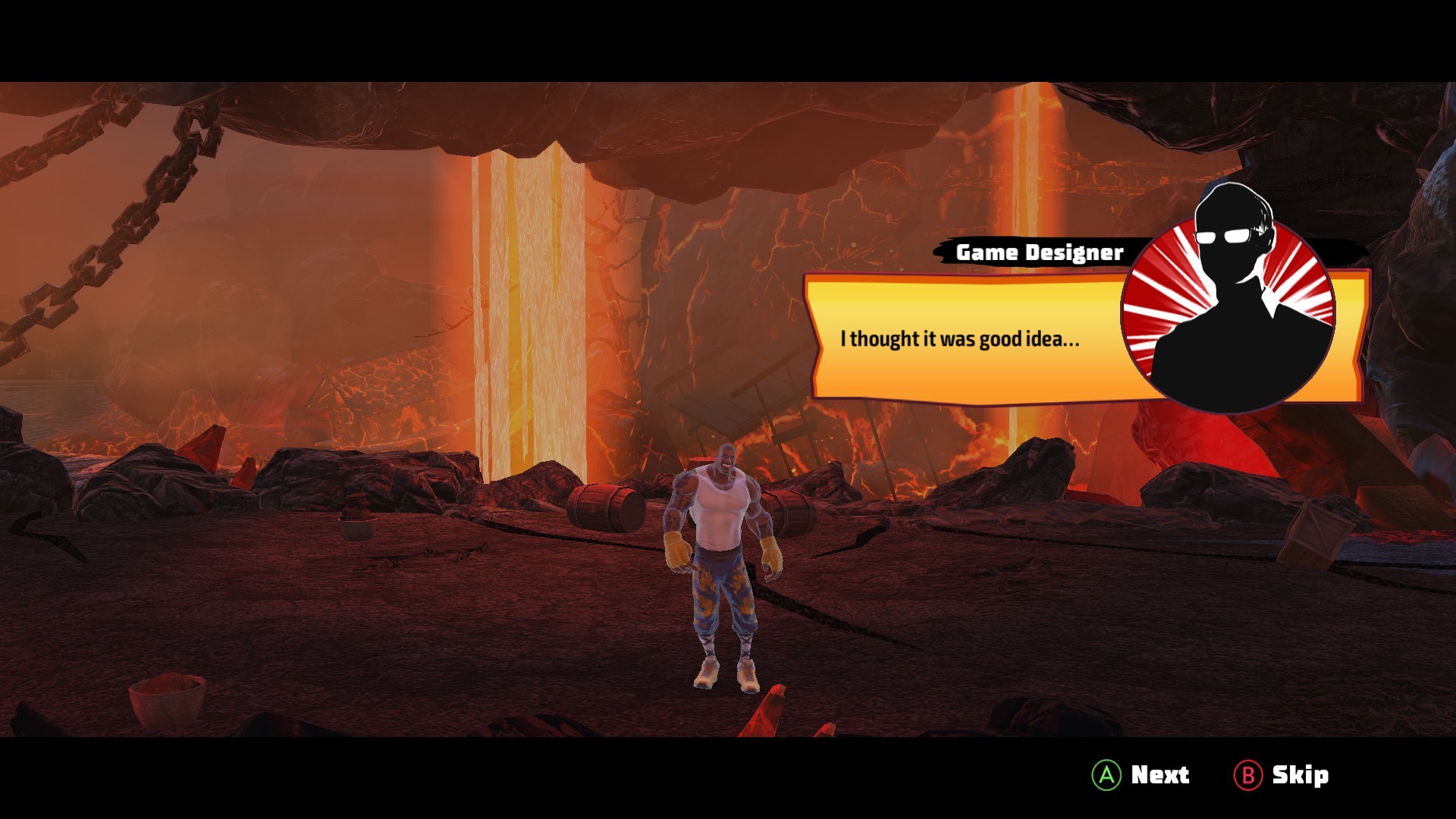
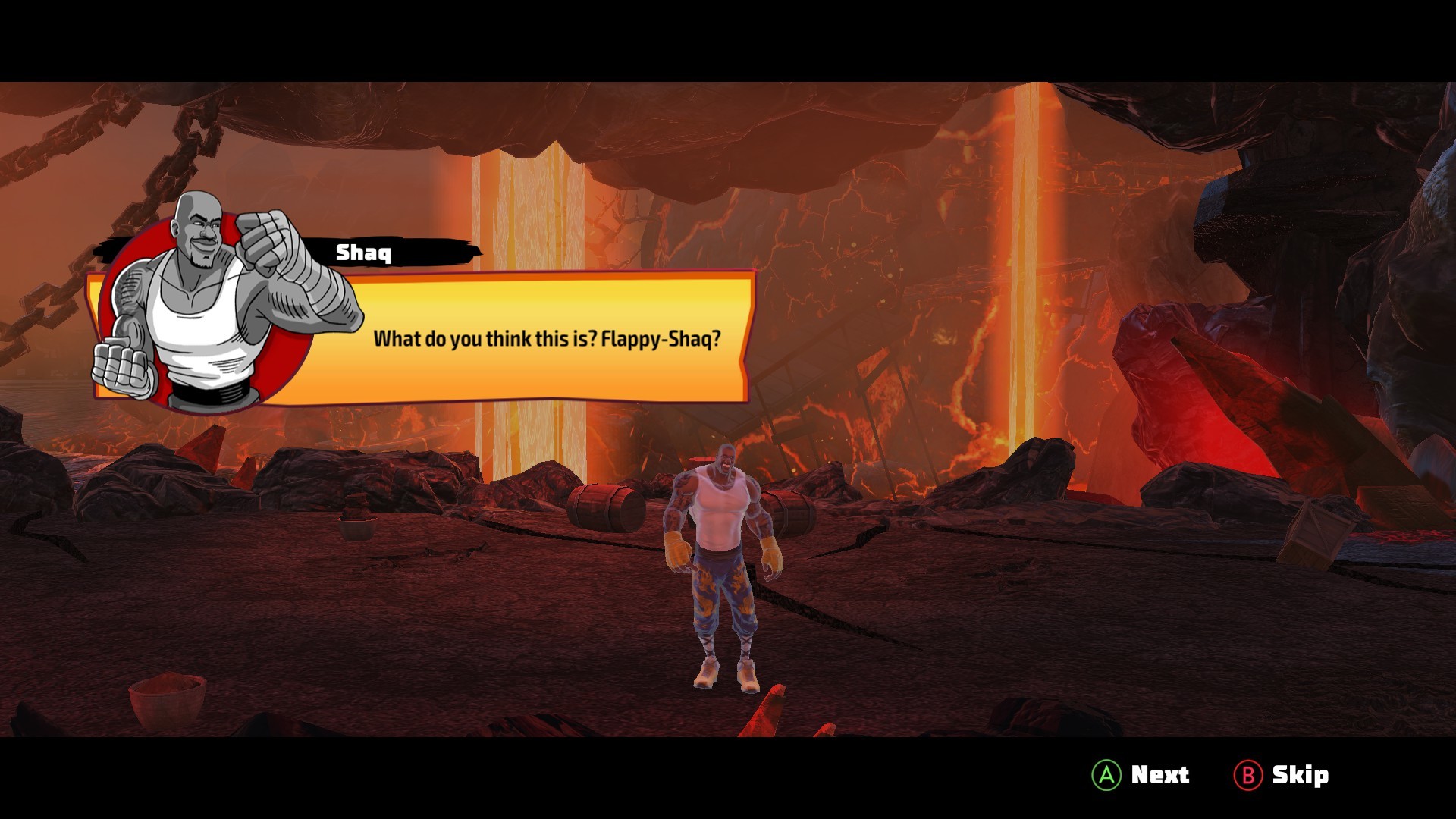
... and sadly, the game's sense of humor also peters out pretty quickly. Its references to celebrities felt just a little too "safe," like the team was afraid of drawing too much attention to them. Most of the jokes felt low-effort. (I would have expected more of the "Shaq's Chinese?" running gag, which was weirdly under-utilized.)
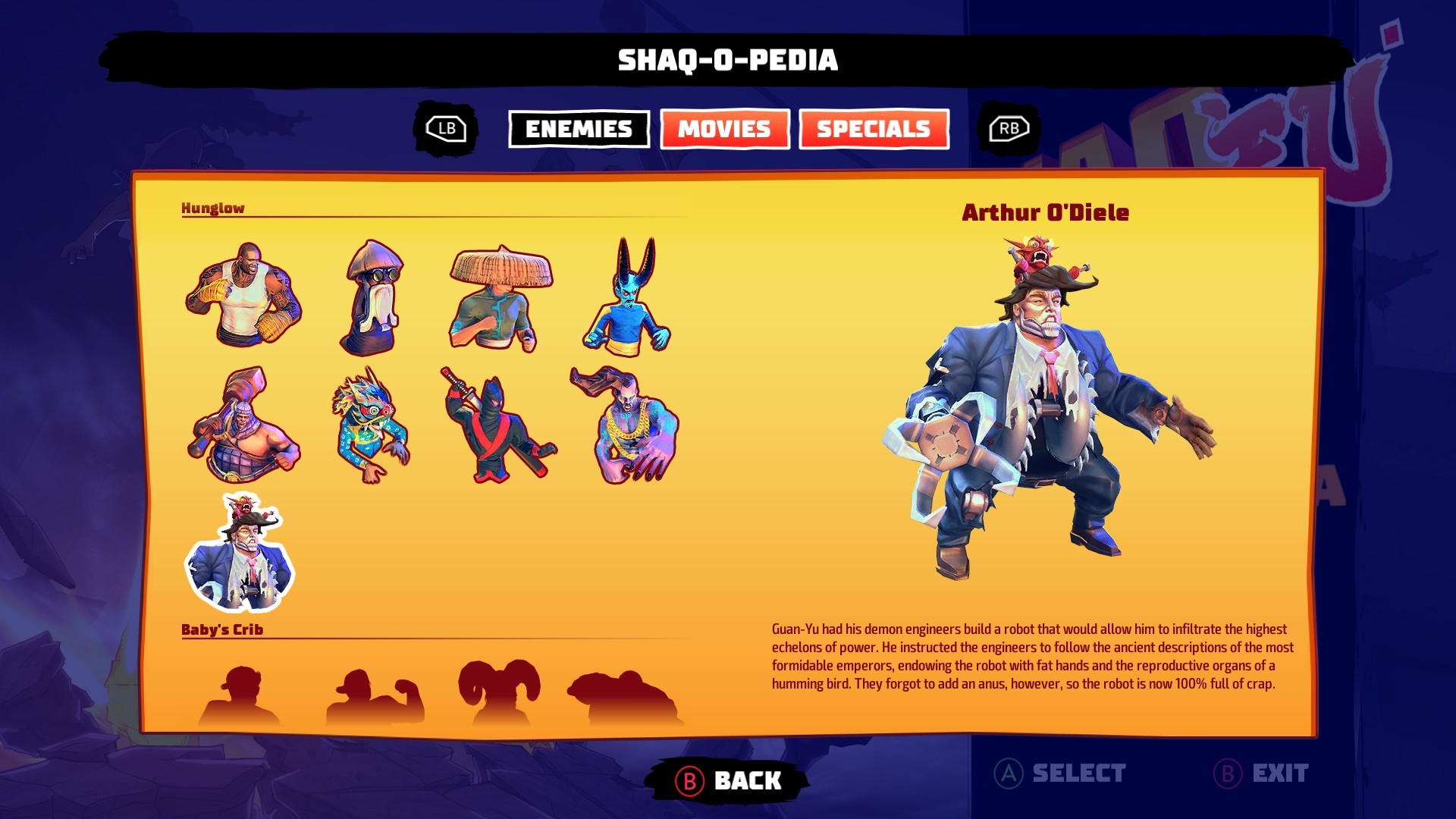
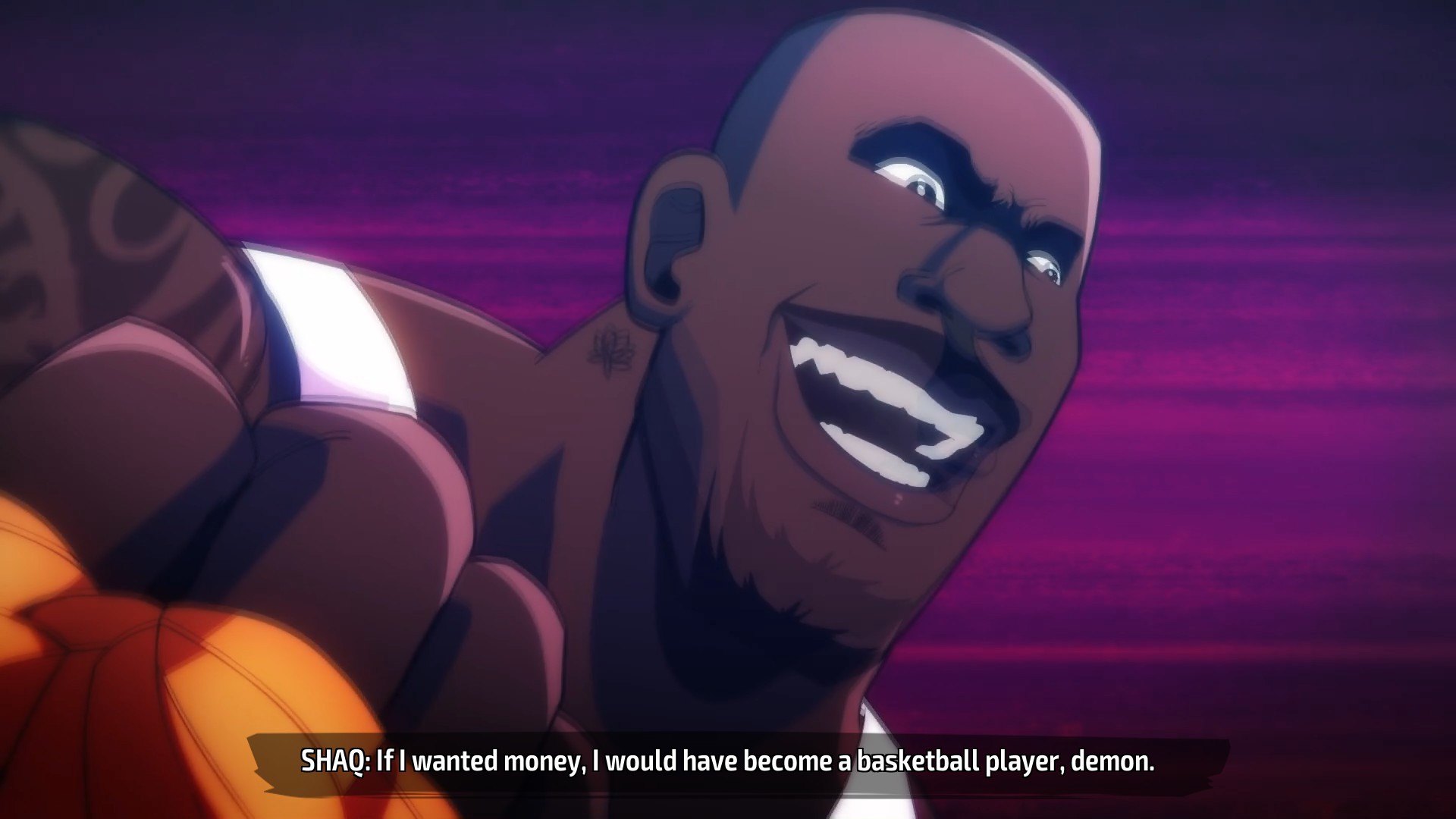
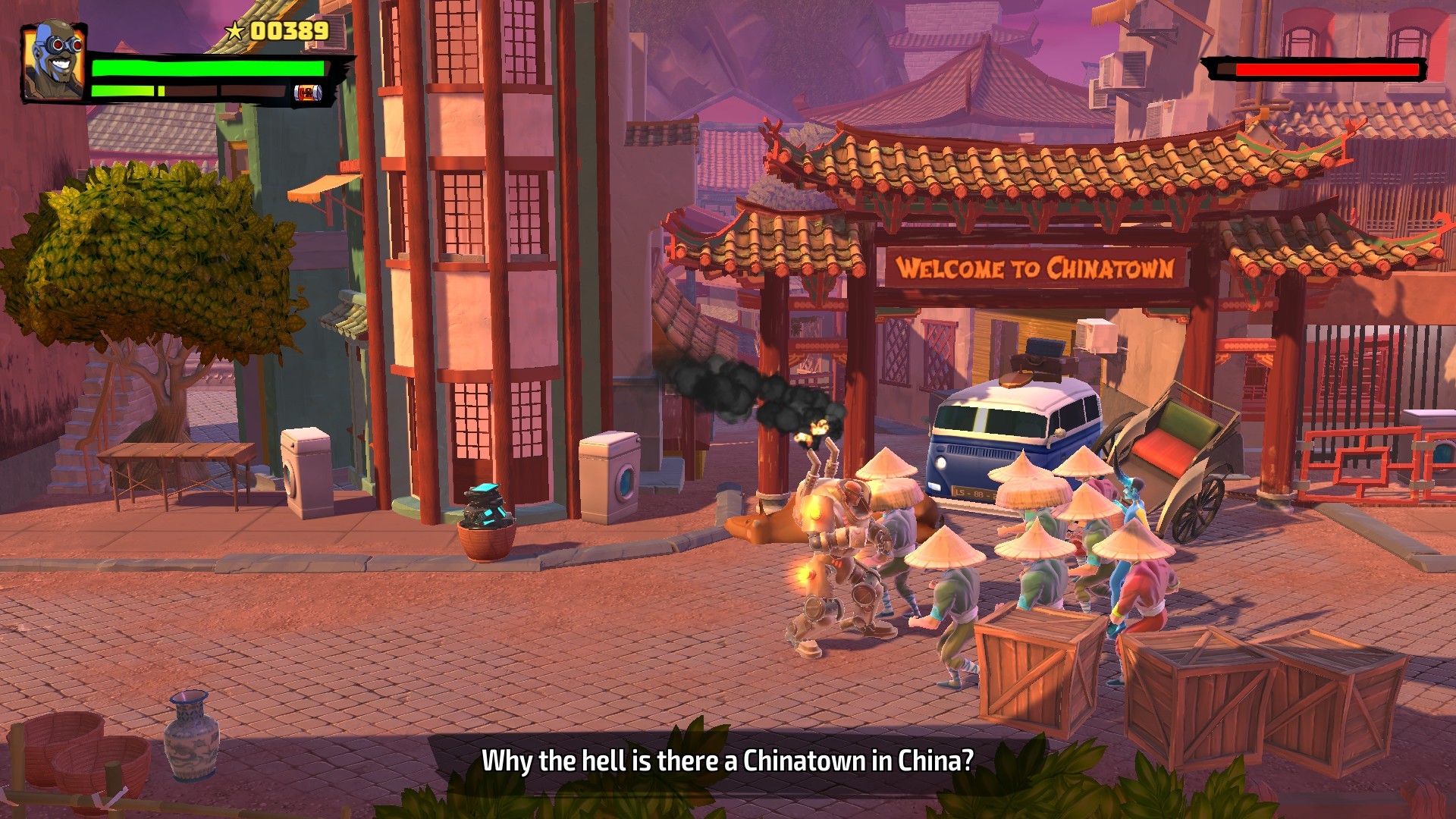
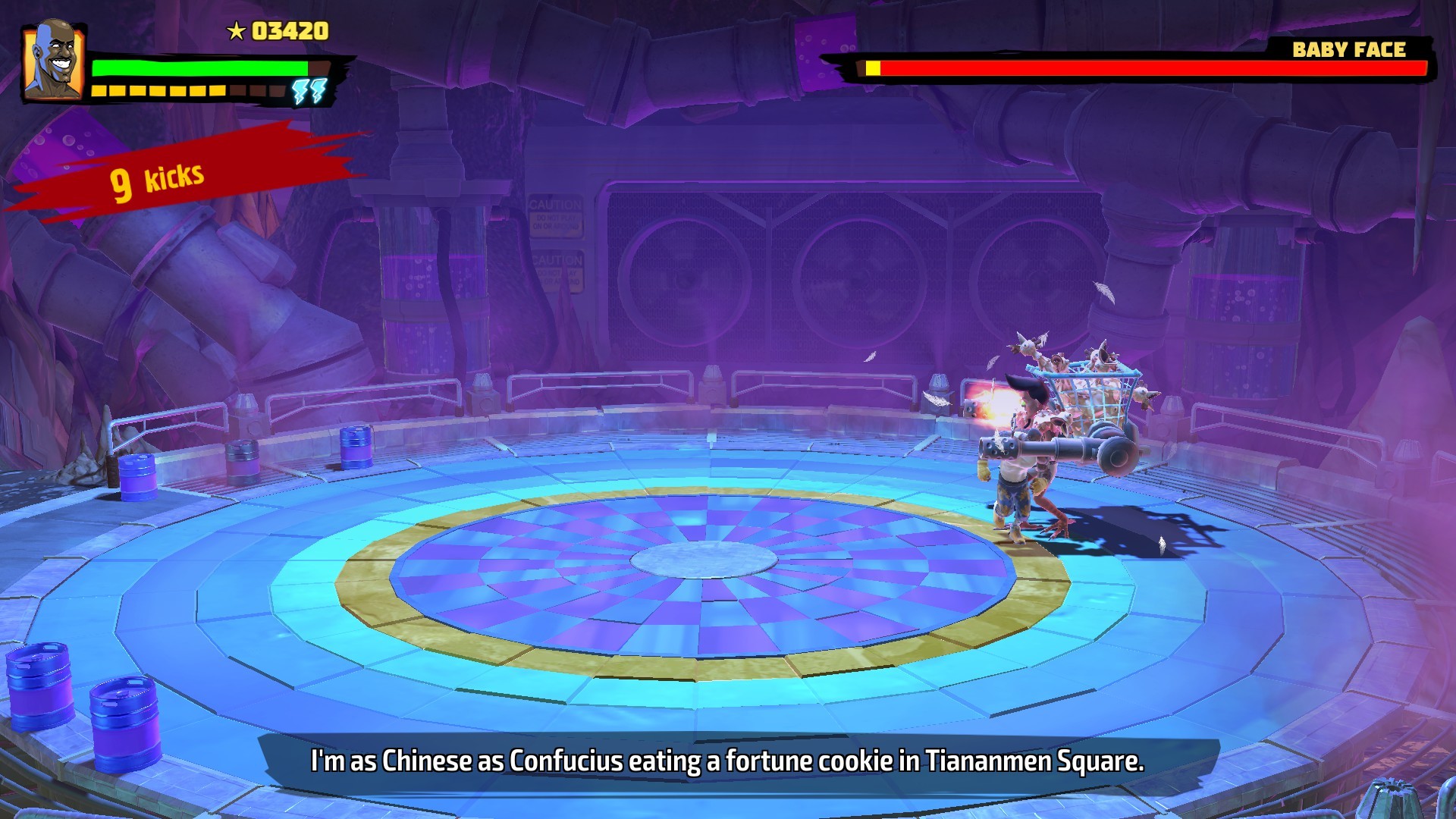
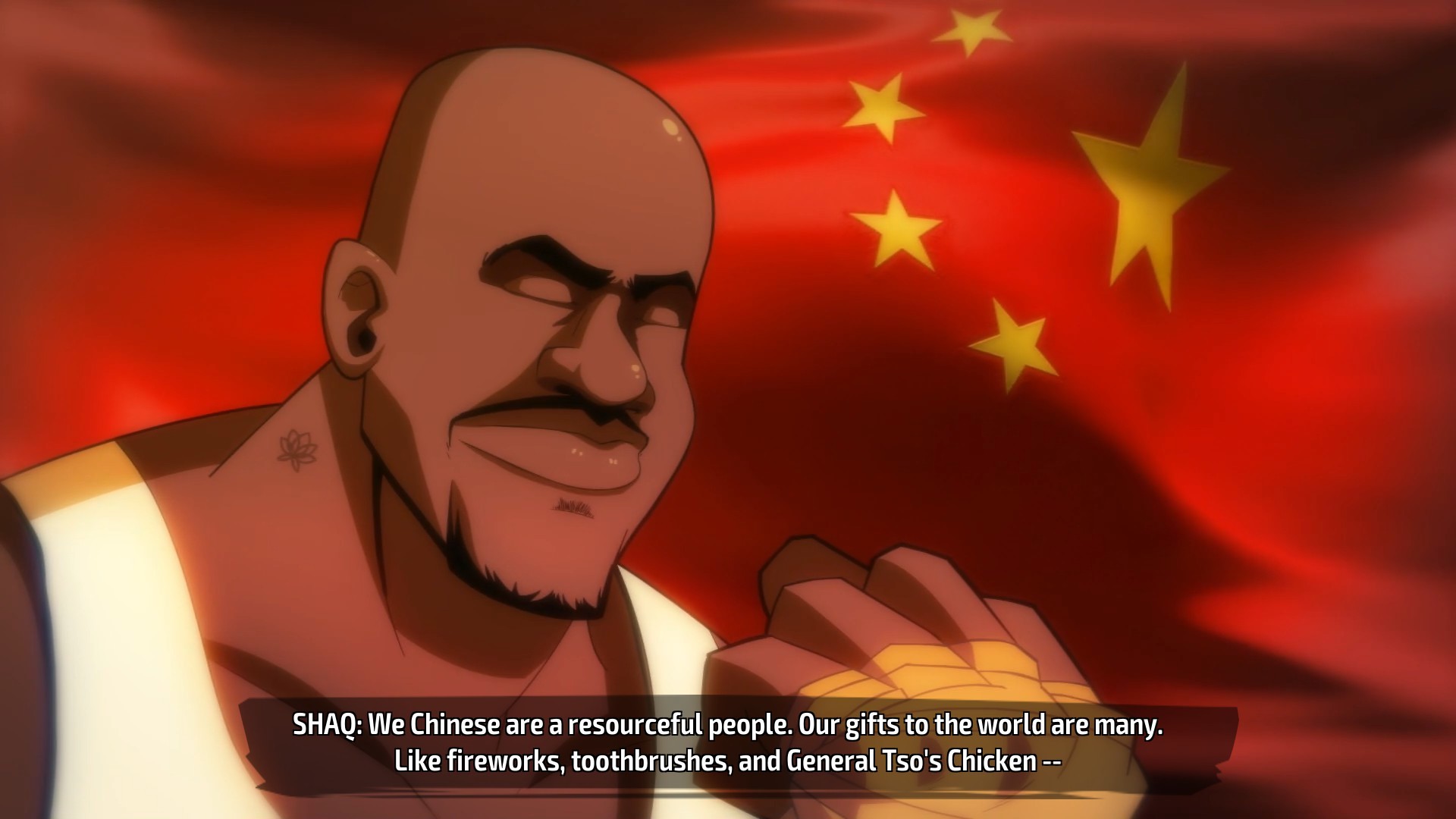
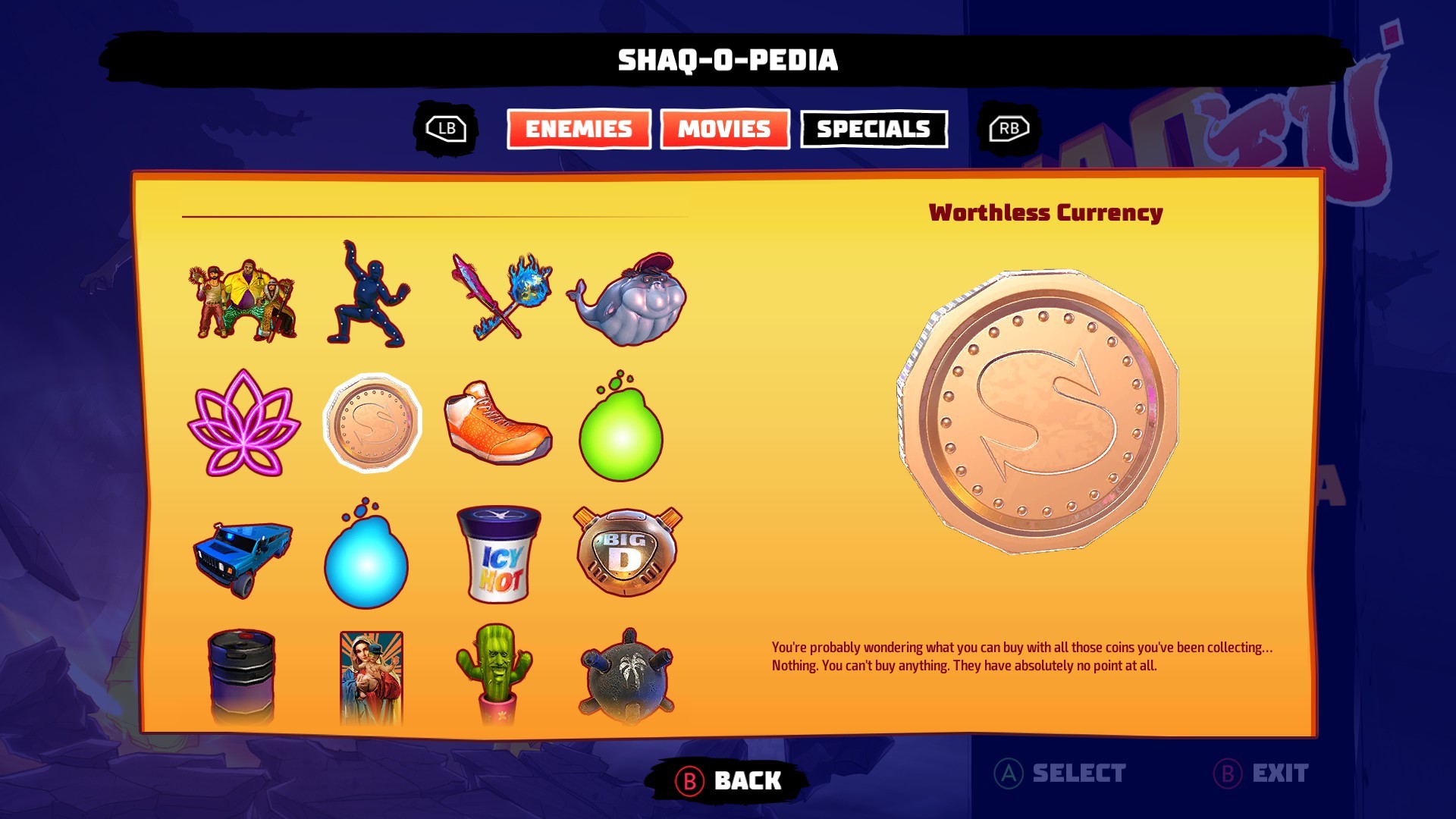
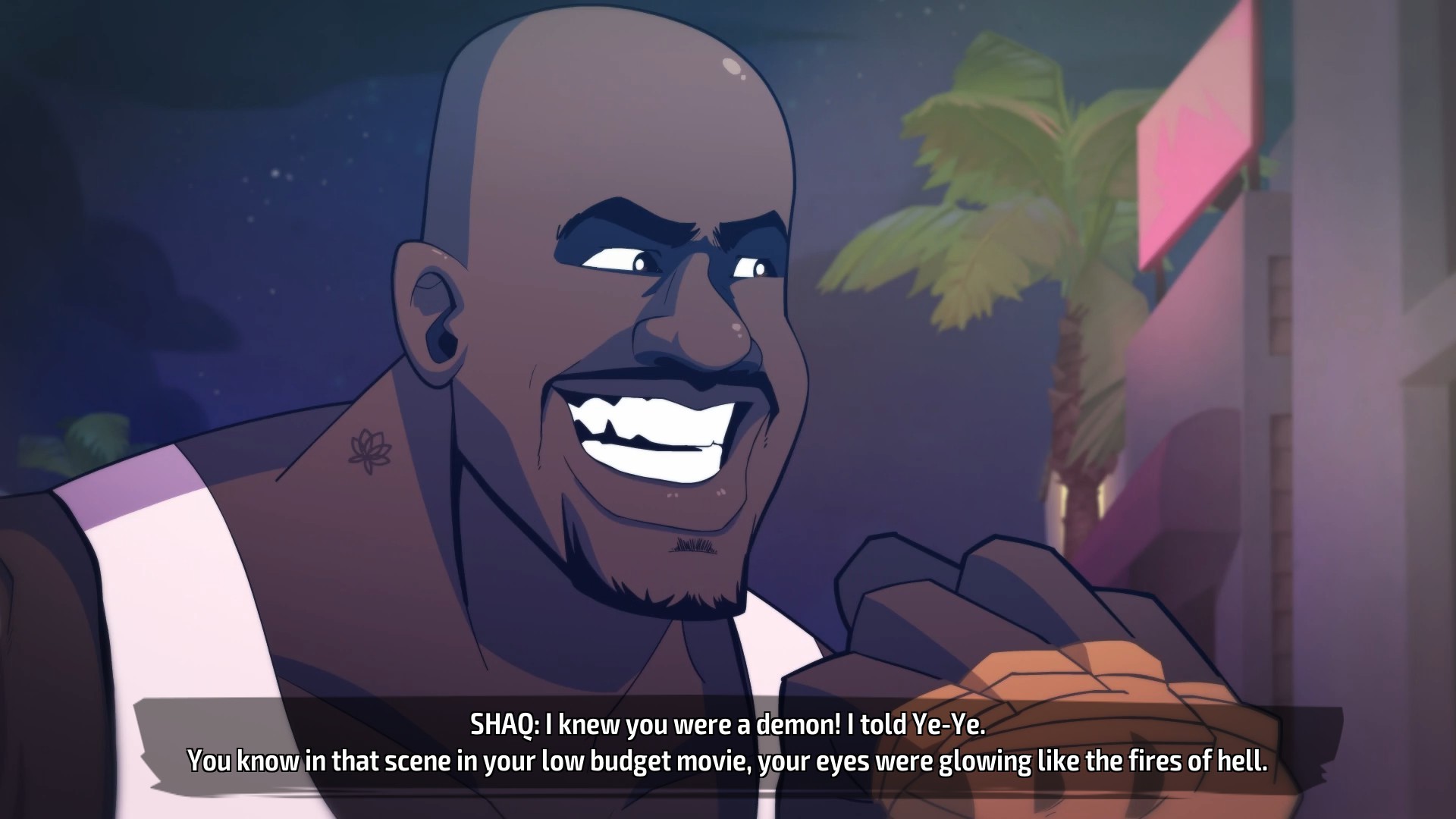
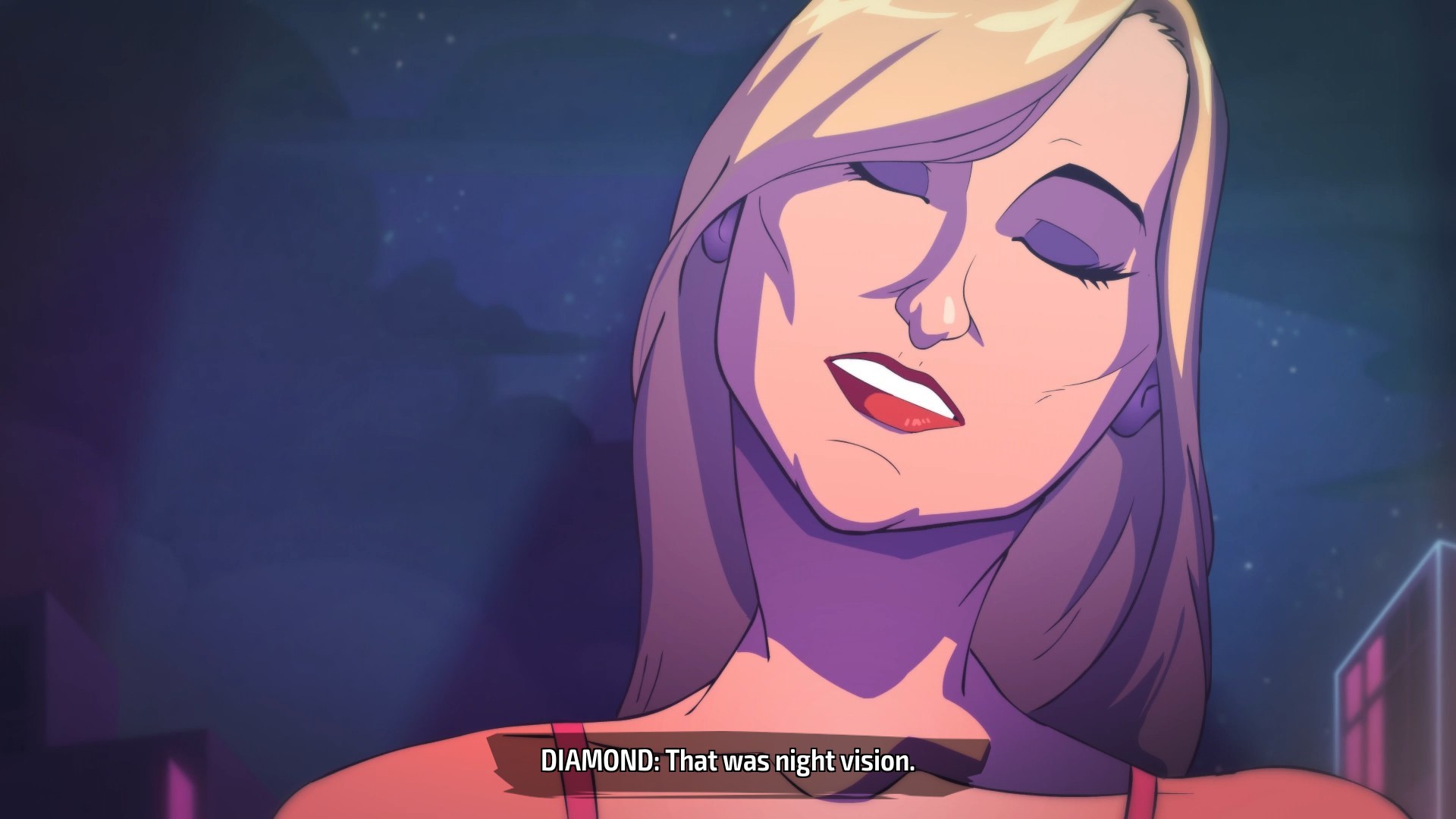
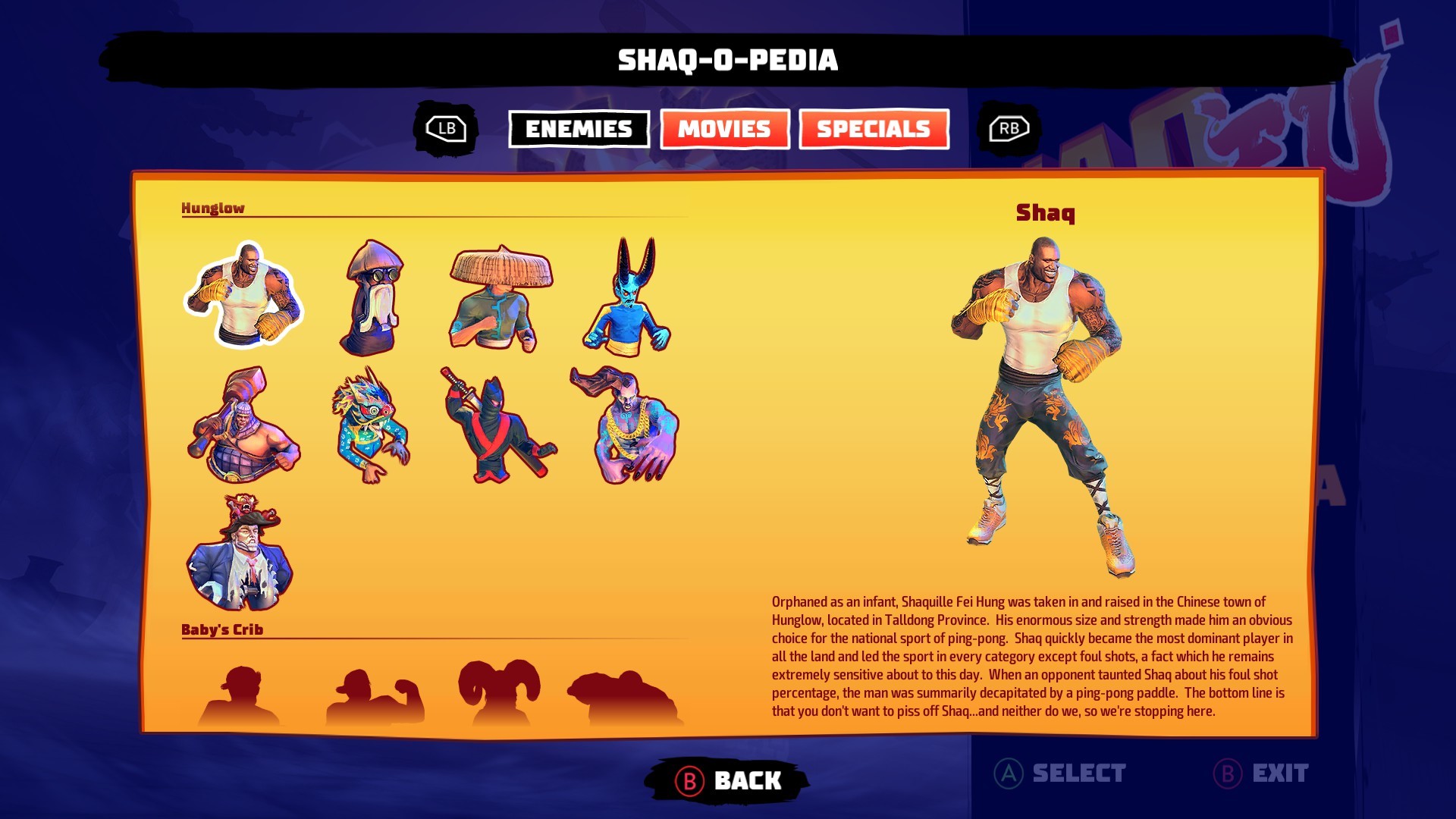
Shaq Fu 2's troubled development story - which the game attempts to lampoon, to awkward result - may really have been a blessing in disguise. As boring as it was to play through the game, it was still, thankfully, only three hours long.
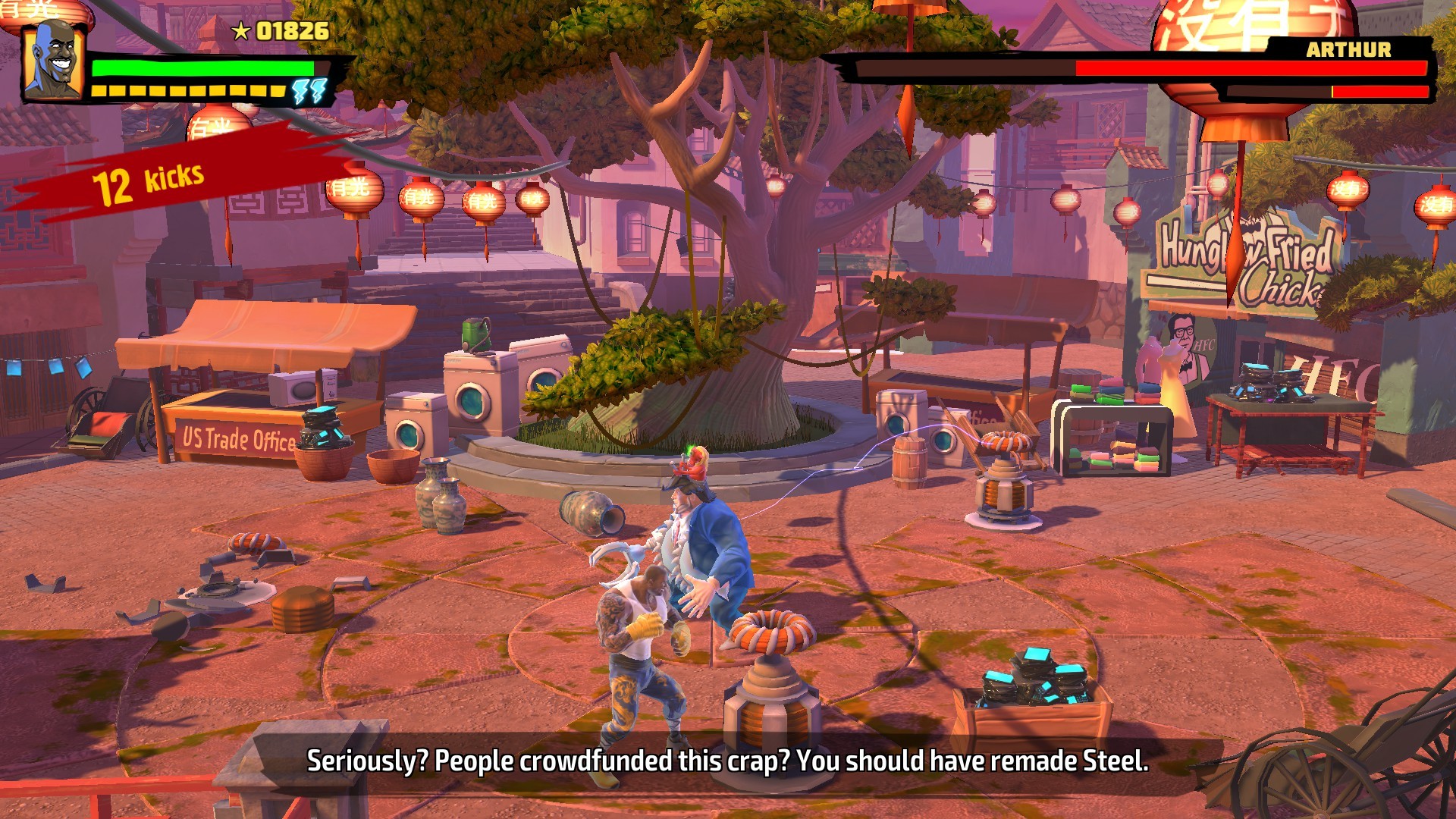
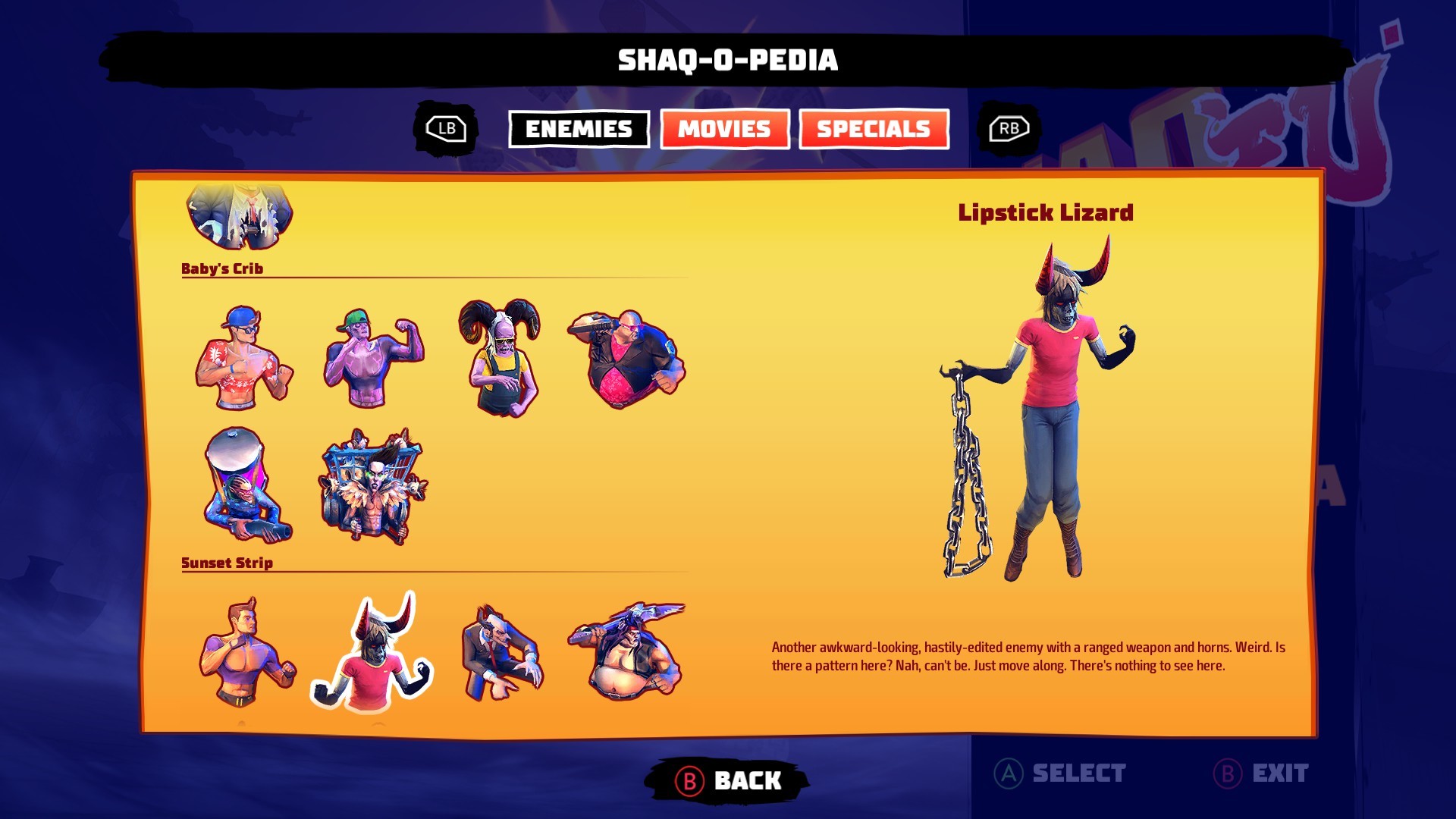
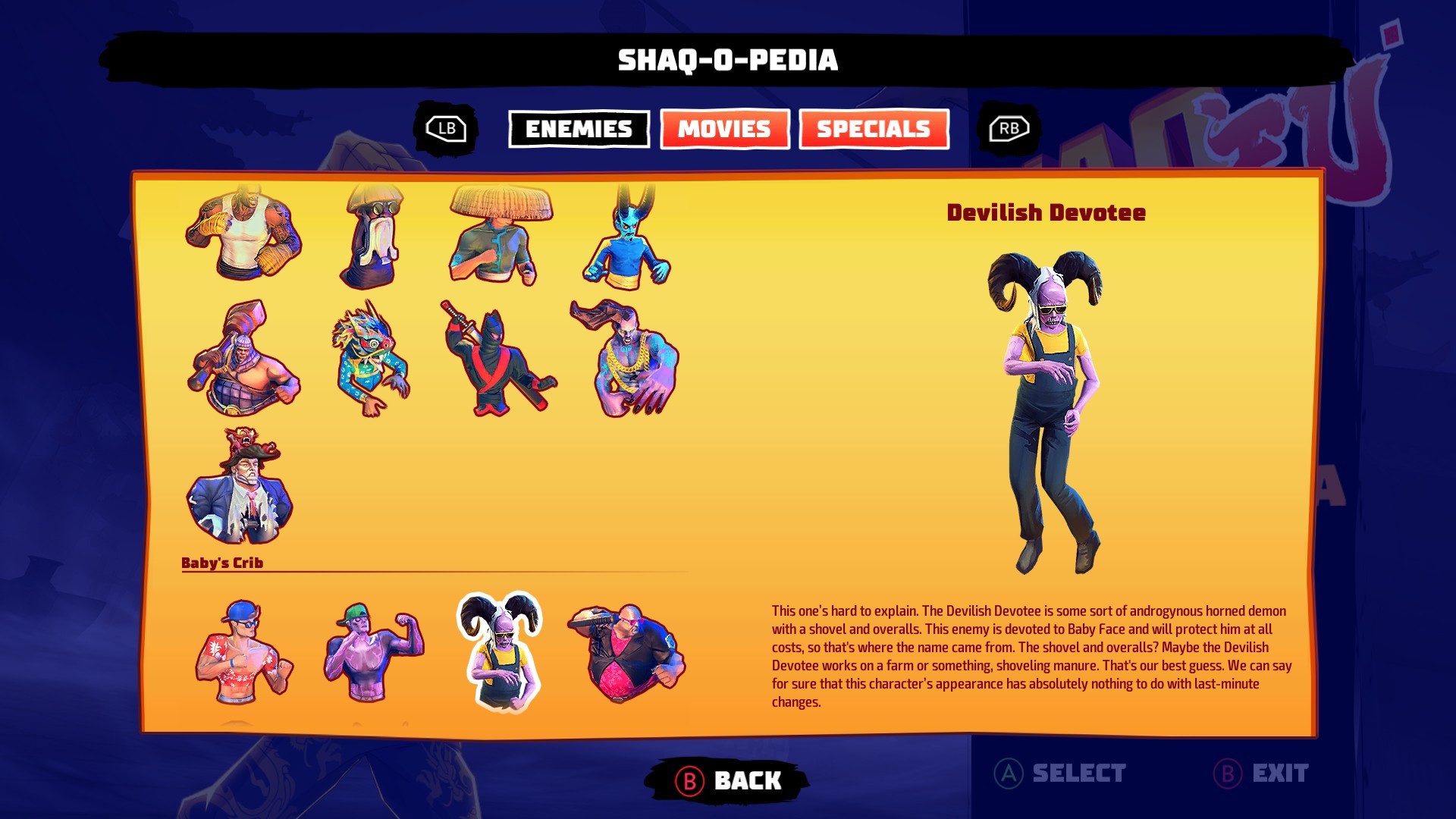
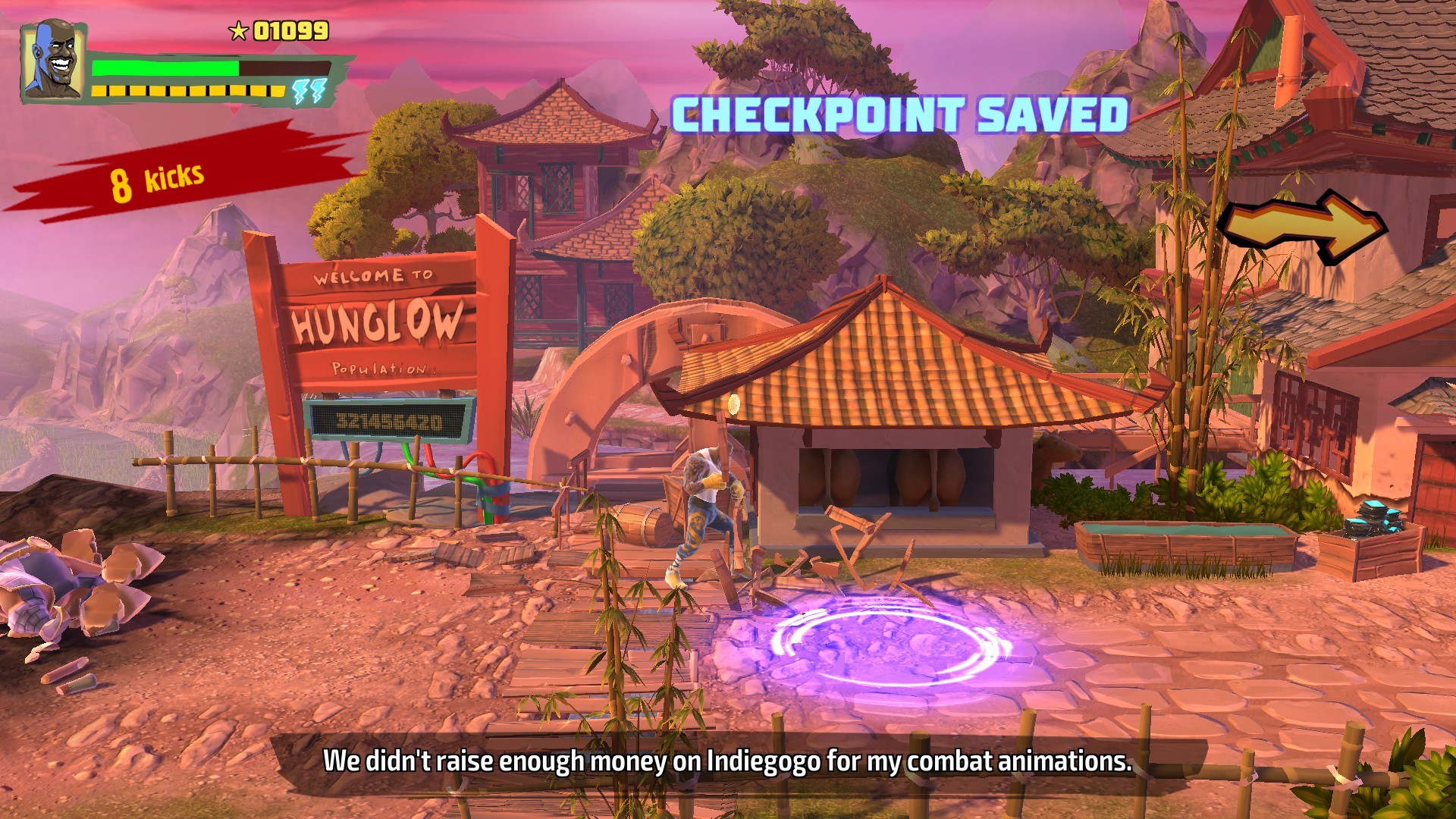
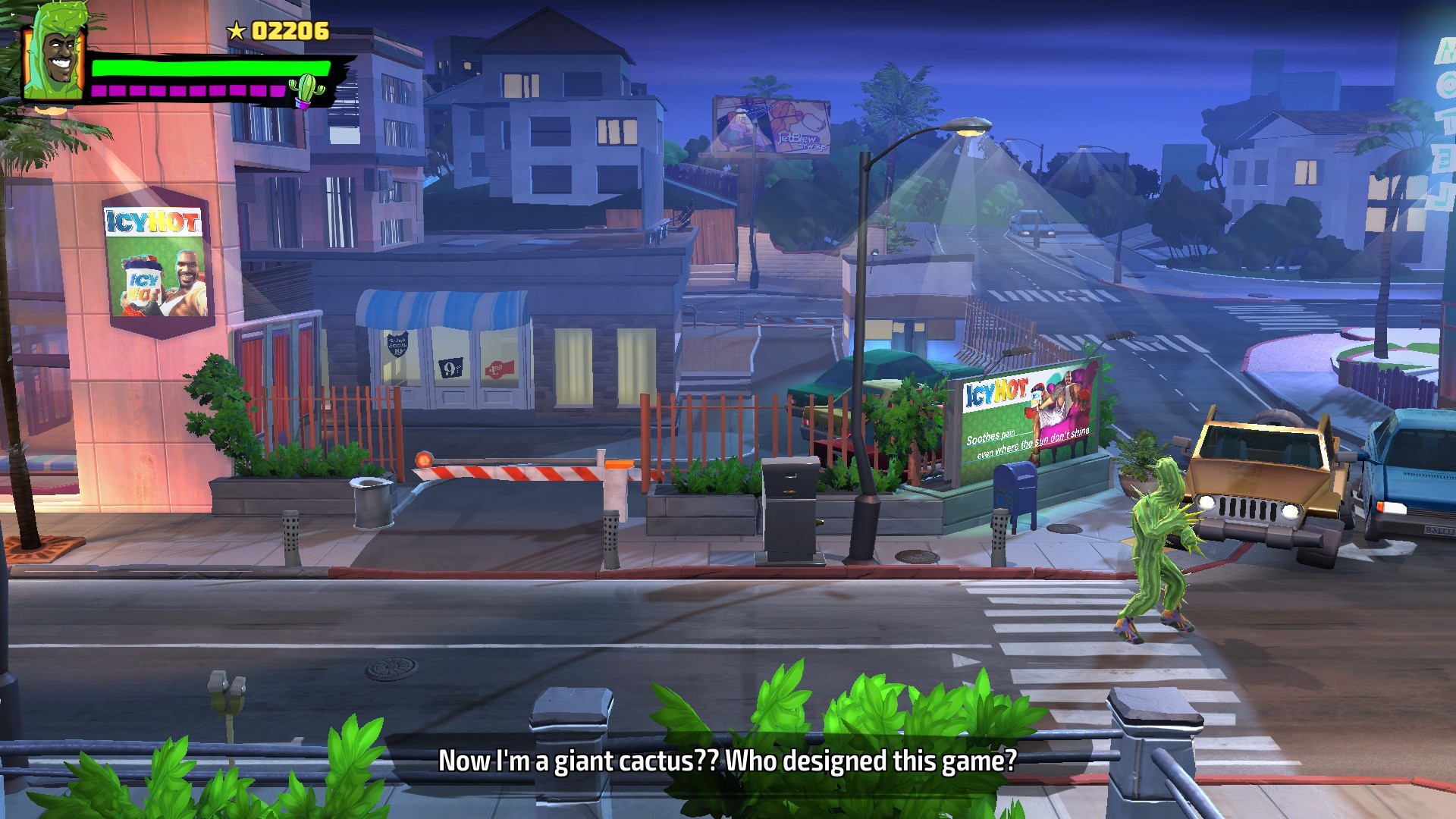
So, file Shaq Fu: A Legend Reborn under "mocks game design mistakes that it has itself made." And like I said, not the worst of those I've played.
Better than: Eat Lead: The Return of Matt Hazard
Not as good as: Marlow Briggs and the Mask of Death
Probably also better than: Shaq-Fu, but, c'mon.
Progress: Finished on Normal.
